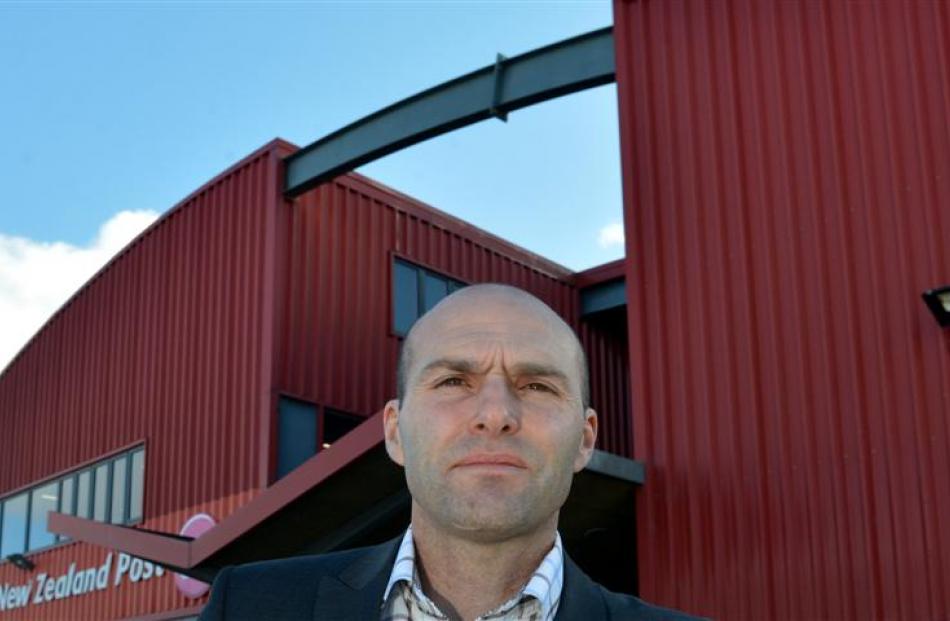Dunedin posties were welcoming being part of a changing mail delivery environment which could see the introduction of mid-range vehicles and e-trolleys, New Zealand Post operations general manager Matthew Riordan says.
Mr Riordan, who has responsibility for the central and southern operations of NZ Post, was in the city yesterday to talk to postal staff about the changes being considered by the state-owned entity.
One of the main concerns he was asked to address was what the changes meant for individual staff.
The posties were aware of the rapid change to fewer letters and more parcels. They wanted to be part of the solution, he said.
''The conversation is how does that affect what happens in Dunedin?''
NZ Post was undertaking strategic thinking of how heavier mail deliveries could be handled in the future.
In Wellington, mid-range vehicles - similar to a golf cart and capable of carrying 300kg of mail - had been trialled successfully.
Those vehicles might not be suitable for Dunedin's steeper streets and it was possible e-trolleys, which were electric powered, could be used in the city.
The trolleys would be more suited to southern winter conditions, along with Dunedin's steep streets and narrow footpaths.
Asked about other Otago centres, such as Alexandra and Queenstown, Mr Riordan said each centre would have an individual solution for delivery to suit local conditions.
In Alexandra, for instance, it was possible NZ Post would deliver community newspapers, and with the greater weight to be delivered, mid-range vehicles might be the answer.
When it came to consultation within the local communities, NZ Post planned to talk to a range of interested parties, he said.
If print media was being delivered, newspaper publishers would be consulted, along with local councils who would need to approve different modes of delivery, such as the mid-range vehicles being used on footpaths.
The vehicles travelled at 10kmh and had proved safe in trials, he said.
Mr Riordan was at pains to emphasise NZ Post ''had not closed up shop'' in Dunedin.
Businesses had been assured standard mail would be delivered within two to three days and priority was delivered overnight.
There was a Dunedin workforce sorting priority mail and business and bulk mail was being collected in the city.
Posties were delivering mail and staff were still sorting inbound mail.
The majority of the Dunedin Postal Centre's work had been transferred to Christchurch, a decision Mr Riordan defended because Christchurch remained the central hub for the South Island, servicing the South and also up to Nelson.
Retaining NZ Post's larger site in Christchurch meant fewer people were affected by the change, he said.
Business customers concerned about sending out their accounts and receiving the money back were being reassured it was still three days out and three days back for standard mail deliveries.
While in the city, Mr Riordan met about 40 business representatives at a seminar.
One of the major topics to be addressed was the amalgamation of two mail delivery services - posties and couriers.
Letter numbers sent through the post were expected to fall by half from the present 650 million a year within three to four years and courier parcel mail deliveries were expected to double in the same period.
Changes needed to be made.
''It's said in a lot of ways but we need to change.
"We have machines there but not enough mail.''













